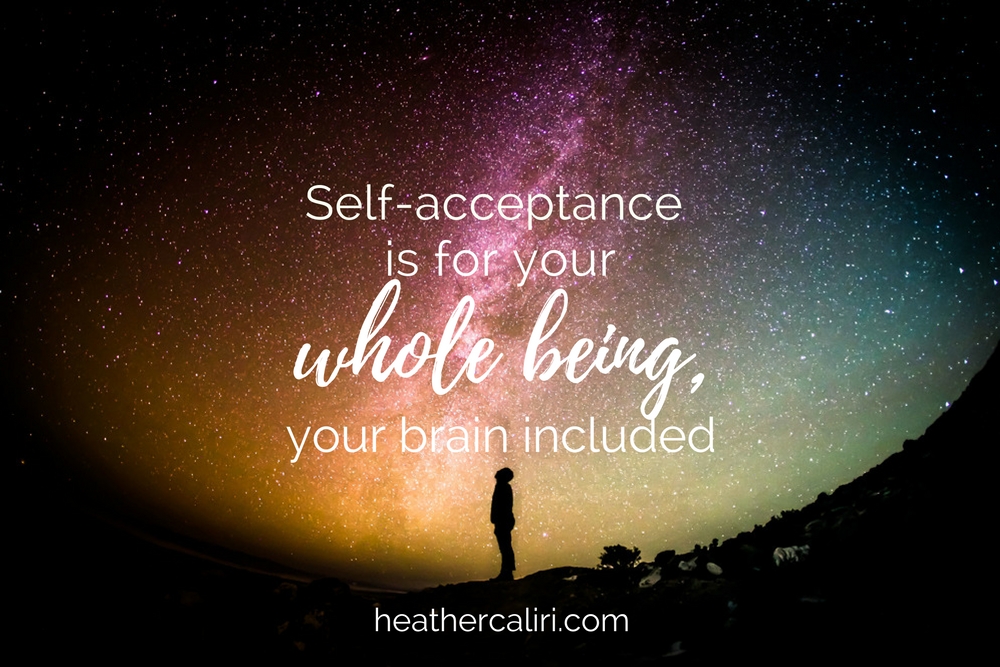
Do you ever struggle with self-loathing? Have you noticed it’s impossible to argue yourself out of it?
You know your hatred of your thighs or your social anxiety or mental health or frailties isn’t healthy. You remind yourself of better thought patterns and chide yourself to be brave.
And then you keep on clinging to the irrational, mean-spirited thought patterns that hurt you.
It’s hard to change that ugly dynamic.
I’m starting to understand why—and how to do it anyway.
When your self-image tanks for no reason
Last winter, my family and I got professional pictures taken. When we got the shots back, I paged through them with glee, because they looked amazing.
And then, flipping through, I stopped at one of me. I looked a lot heavier than I had imagined myself to be.
Next photo: same thing.
Next photo: same thing.
Did the cut of my jacket not work as well with my as I’d thought? Except—my pants had been tight lately. I’d thought it was just hormonal, but they hadn’t loosened in a few cycles…
That’s all it took. After those photos, ugly self-loathing lodged itself in my brain. For months afterwards, very time I looked in the mirror or put on a pair of pants or ate dessert I had a nasty argument with myself about fatness.
I’ve struggled with lousy body-image before—mostly after high school, when I stopped dancing fifteen hours a week. But it has been years since I dealt with it this powerfully.
I knew my feelings of self-loathing were irrational. My body was about the same shape. My clothes basically fit. No one around me was sitting back and judging my shape.
But the ugly thoughts continued.
Ashamed of my body, ashamed of my shame
To my surprise, the ugly thoughts ashamed me more than my weight did.
I knew better than to hate my own body.
I tried mini pep-talks. You know you can be healthy at any size. You eat well and exercise joyfully, so if your body changes, it’s because it’s natural, not a personal failing.
No dice—my brain stayed sullen and judgy. I hated it.
I also felt dumb. My friend Ashley had recently polled some friends about body image, and I’d blithely responded at how evolved I was about it. And now, not two months later, I hated my waistline?
I felt really angry with myself.
Self acceptance is for your whole being, your brain included
About a month ago, my friend Michelle posted about the fat-phobia of our culture on Facebook.
The word phobia sparked something for me.
It was this: it’s pretty normal to feel lousy about my body. For women, it’s almost universal.
So maybe this self-loathing wasn’t a moral failing. Maybe, like my weight, it was something I could work at accepting.
That sounds really weird. Accept my own self-loathing?
But really, it’s not that different from accepting different body sizes. My brain is part of my body, after all. We don’t always get the shape or size we wish we had.
Given how hard it is to have a good body image in our culture, could I not have any grace with myself for struggling?
I’m not a super-hero. I’m an American woman, and I struggle with fat-phobia as much as the next person.
So why should I be ashamed when I do?
Self-acceptance is a life-long process, not an instant decision
The self-loathing died down a lot when I realized that feeling ambivalent or even negatively about myself is kind of normal.
Yes, I can reach for better habits of mind. But I’m human, and I will likely struggle with my fat phobia again.
It is tremendously freeing to admit to yourself that imperfection is okay, normal, and to be expected.
Every struggle is really two struggles. There’s the struggle itself (I feel anxious), and there’s the shame about having the struggle (it’s dumb to feel anxious).
Real self-acceptance means accepting that both are hard. Our thought lives are janky and less-than-ideal. We do not always respond to ourselves with integrity, grace or acceptance.
We do not perfectly handle our own imperfections.
That. Is. Normal.
We’re all in process about our processes. We’re beginning on our beginnings. We’re working on thinking about our thinking. It’s ridiculous. It’s inefficient.
And it’s reality.
Why Our Thought Patterns Are Hard to Change
When we face a negative thought pattern, we have two struggles: the pattern itself, and our thoughts about the pattern. Shame ourselves for either, and we’re likely to curl up into a little ball and give up.
But when we think that everything about us—including our thoughts and gut reactions—is part of a long, slow journey of change, it’s easier to have grace with our stuttering tries, our stuttering minds, and our stuttering selves.
If you’re frustrated with your own frailty, self-loathing, and mental fuzz, I get it. I would like to instantly clean up my own act, too. But if we truly long for self-acceptance, we can start with our cloudy heads and imperfect reactions, and treat them like the slightly rowdy, stubborn toddlers that they are.
We can pull them close, make a joke, or offer them a snack. And smile at their obstreperous whining.
Life is hard. Changing our minds and hearts is hard. So let’s have grace for our bodies, our brains, and our ever-living minds.


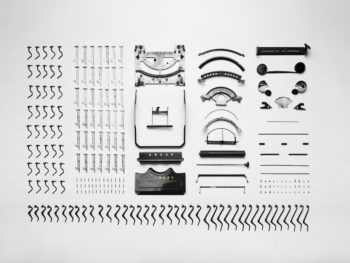






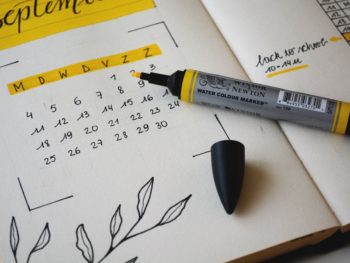


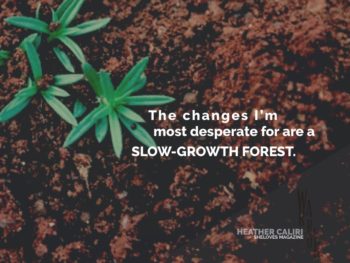
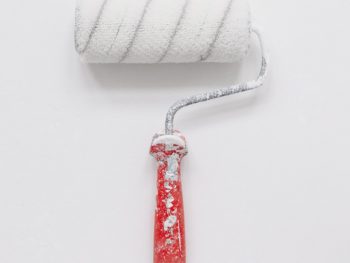

Oh can I relate to beating myself up for beating myself up! But it never occurred to me to give grace toward my imperfect self-thinking. It’s easier to jump on the “whatever is true, whatever is noble,” judgy thought train than to back off and recognize that I’m as imperfect in my thinking as I am in all other parts of life. Thank you for sharing that revelation!
You’re welcome! When I realized a lot of my energy went towards shaming myself for even having the thought I was like, OHHHH. That’s why this is sticking around. Because shame is like toxic brain sludge. 🙂
This is good for me to think through regarding both body image and “self-improvement.” I want to be better. To improve. Whether my weight or my habits or de-cluttering my stuff or simply managing my life – SO THAT I can be more effective at being me. I want to find the balance between gently “pushing myself” and accepting myself. Loving myself even. I come back to the concept of nurture as one way to love myself. I will make healthy decisions because I love me and want to be the best me I can be.
After a long time struggle with should’s, I’m slowly learning not to let anybody “should” on me – and not to “should” myself. This post kinda’ goes along with that process.
Thank you.
Yes, to feel shame about shame — the cycle keeps continuing, doesn’t it? Thanks for sharing your own journey with such grace, clarity and kindness. Thanks, too, for the lovely linking, friend.
It’s kinda ridiculous, I think. But good to keep in mind. You are welcome, friend 🙂 Glad to be in writerly fellowship with you.